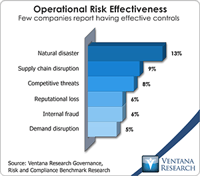
In some parts of the world, bribing government officials is still considered a normal cost of doing business. Elsewhere there has been a growing trend over the past 40 years to make it illegal for a corporation to pay bribes. In the United States, Congress passed the Foreign Corrupt Practices Act (FCPA) in 1977 in the wake of a succession of revelations of companies paying off government officials to secure arms deals or favorable tax treatment. More recently other governments have implemented...
Topics: SAP, ERP, Governance, GRC, bribery, Operational Performance, Business Analytics, Business Performance, Financial Performance, Governance, Risk & Compliance (GRC), IBM, Operational Intelligence, Oracle, CFO, compliance, FPM, Oversight Systems









